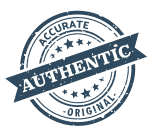Narcolepsy, a chronic neurological disorder affecting the brain’s ability to regulate sleep-wake cycles, often remains a misunderstood and underrepresented condition. While it’s estimated to affect about 1 in 2,000 people in the USA, narcolepsy’s impact extends to individuals from all walks of life, including the glitzy realm of celebrities like singers, comedians, and actors across the world.
From Hollywood stars to beloved musicians, this guide reveals a compelling list of famous people with narcolepsy who have openly shared their journeys with the condition, contributing to the broader conversation about mental health and raising awareness about this often-overlooked disorder.
What Is Narcolepsy?
Narcolepsy is a complex and chronic neurological disorder that significantly impacts the sleep-wake cycle, resulting in disturbances that go beyond conventional sleep disorders. This condition, often misunderstood, stems from a deficiency in the brain’s ability to regulate sleep patterns effectively [1].
There are two primary types of narcolepsy:
- Type 1 narcolepsy, formerly called narcolepsy with cataplexy, is diagnosed based on low levels of the brain hormone hypocretin or the presence of cataplexy along with excessive daytime sleepiness (EDS) on a nap test;
- Type 2 narcolepsy, previously known as narcolepsy without cataplexy, is characterized by excessive daytime sleepiness without muscle weakness triggered by emotions. Symptoms are generally less severe, and individuals typically have normal hypocretin levels.
Secondary narcolepsy can occur due to hypothalamus injury, resulting in typical narcolepsy symptoms alongside severe neurological issues and prolonged nightly sleep exceeding 10 hours.
At its core, narcolepsy is linked to the neurotransmitter hypocretin, also known as orexin. Hypocretin is pivotal in regulating wakefulness and maintaining a stable sleep-wake cycle. Individuals with narcolepsy typically exhibit lower levels of hypocretin, leading to disruptions in their ability to stay awake during desired waking hours.
Narcolepsy profoundly impacts rapid eye movement (REM) sleep, a phase crucial for cognitive and emotional well-being. Unlike the general population, individuals with narcolepsy often enter REM sleep much quicker, sometimes directly from wakefulness. This abnormal intrusion of REM sleep into wakeful moments contributes to the sudden and uncontrollable sleep episodes characteristic of narcolepsy.
Research suggests a multifaceted origin of narcolepsy, involving both genetic and environmental factors. Further, its cause, though not fully understood, is believed to result from factors like autoimmune disorders, where the immune system attacks hypocretin-producing brain cells, family history, and, in rare cases, traumatic brain injuries or diseases affecting wakefulness-regulating regions [1]
Narcolepsy can also have profound effects on various aspects of daily life. Cognitive function, emotional well-being, and overall quality of life may be compromised, requiring individuals to adopt coping strategies to navigate these challenges.
Symptoms of Narcolepsy
Narcolepsy is a persistent condition, but it typically doesn’t worsen with age. Although symptoms may partially improve over time, they seldom completely disappear. The key symptoms include [1]:
- EDS: All narcolepsy individuals experience EDS, marked by persistent sleepiness resembling sudden sleep attacks. In between attacks, normal alertness returns, especially during engaging activities;
- cataplexy: A sudden loss of muscle tone triggered by strong emotions like laughter or fear. Cataplexy may manifest weeks or years after EDS onset, varying from mild, momentary weakness to severe total body collapse. Unlike seizures, individuals remain conscious, and episodes resolve rapidly;
- sleep paralysis: Temporary inability to move or speak during sleep onset or awakening, similar to REM-induced muscle inhibitions. Unlike cataplexy, it occurs at sleep edges, lasting seconds to minutes. Individuals remain conscious, and after episodes, they quickly regain full movement and speech;
- hallucinations: Vivid and occasionally frightening images accompanying sleep paralysis, typically during sleep onset or awakening. Primarily visual, hallucinations can involve any sense.
Additional symptoms encompass insomnia, fragmented sleep, automatic behaviors (brief sleep episodes during activities like eating or talking), and vivid dreaming with potential sleep disruptions like sleep apnea or periodic leg movements. Automatic behaviors can impair performance, especially during habitual activities, with individuals often awakening feeling refreshed despite momentary drowsiness.
List of Celebrities with Narcolepsy
Narcolepsy transcends boundaries, affecting individuals from various walks of life, including celebrities who have openly shared their experiences. These personalities bring awareness to the challenges of living with narcolepsy, dispelling myths and encouraging understanding. Here, we explore 11 well-known figures who have navigated their careers while managing narcolepsy:
Jimmy Kimmel
He’s an American comedian, writer, television host, and producer. He has been the host and executive producer of “Jimmy Kimmel Live!” since 2003. He presided over the Primetime Emmy Awards in 2012, 2016, and 2020, & the Academy Awards in 2017, 2018, and 2023 [2]. In addition to his successful career, he has also been candid about his narcolepsy diagnosis. “Truth be told, I’d rather have narcolepsy than not have it,” Kimmel told Esquire when he first joked about the perks of having the neurological disorder. “When I get on a flight to Vegas, I’ll fall asleep before the plane takes off and wake up after it’s landed. I’m always very close to sleep [3].”
Jinkx Monsoon
Jinkx Monsoon, also known as Jerick Hoffer, is an American drag queen, comedian, singer, and reality TV personality. As the champion of RuPaul’s Drag Race Season 5, Monsoon acknowledged the impact of narcolepsy on their drag career. Hoffer, as revealed in the Season 5 premiere of RuPaul’s Drag Race, deals with narcolepsy [4]. Understandably, it can be difficult to maintain energy levels while performing, especially when you’re feeling drowsy. However, Jinkx Monsoon’s talent and creativity have helped her overcome these challenges and become a successful drag queen.
Franck Bouyer
In 2004, Bouyer, a French professional cyclist from 1995 to 2013, was diagnosed with narcolepsy, leading to sudden sleep attacks and cataplexy. His career suffered when the International Cycling Union objected to his medication, modafinil, deeming it a performance enhancer. Despite a ban upheld by the Court of Arbitration for Sport (CAS), the World Anti-Doping Agency permitted his return in August 2005. However, after another appeal by the UCI, Bouyer faced a renewed ban. In 2009, he resumed racing with the Bbox Bouygues Telecom team after clarifications on a new narcolepsy drug, Xyrem, not being on the banned list [5].
George M. Church
Not even on the red carpet or in TV appearances, but renowned biologist George Church has been known to experience narcoleptic episodes during meetings and panels worldwide. Despite his narcolepsy, he maintains an impressive ability to wake up instantly upon hearing his name and answer questions without missing a beat. Church, who lists narcolepsy in his personal history, attributes many of his visionary ideas and scientific breakthroughs to moments while either asleep or on the verge of a narcoleptic nap. Meetings may find him briefly dozing, but his mind remains an active source of innovation even in these short bouts of sleep [6]. That’s insanely great.
Nastassja Kinski
Nastassja Kinski is a German actress who has appeared in numerous films and television shows. She has also been a model and has won several awards for her acting performances. Actress Kinski is known for her Golden Globe Award-winning roles in Tess, Cat People, Paris, Texas, and Faraway, So Close. She also works as a model and appears in music videos. She has been open about her struggles with narcolepsy. In an interview with The Telegraph, she described her narcolepsy as a “mild case” and said that it sometimes helps her creatively [7].
Graeme Dott
In January 2006, Alex Lambie, the mentor and manager of snooker player Graeme Dott, a Scottish professional snooker player, was diagnosed with terminal kidney cancer. Despite witnessing Dott’s World Championship win in May, Lambie passed away in December of the same year. Shortly after, Dott’s wife, Elaine, faced a cancer scare during pregnancy but thankfully had no cancer, although a miscarriage occurred during the 2007 Masters [8]. These events led to severe depression for Dott, impacting his practice commitment and match performance, resulting in a 15-match losing streak and a drop in rankings. Medication aided his return to the top 16, but depression remains a lifelong battle. While managing depression, Dott now grapples with narcolepsy. “You need to wear a helmet because you can fall asleep anywhere at no notice. Hopefully, it never gets to that – playing snooker with a helmet on,” he said [9].
Kang Daniel
Kang is a South Korean soloist under KONNECT Entertainment and a former member of Wanna One. He’s a prominent actor, television host, singer-songwriter, & businessman who rose to fame in early 2017 as the first-place winner of the second season of a reality competition series Produce 101. According to his appearance on the MBC variety show “It’s Dangerous Beyond the Blankets,” he has narcolepsy and falls asleep in the shower while washing his hair or at the table while eating a meal with food in his mouth [10].
Teresa Nielsen Hayden
She’s a renowned American science fiction editor and essayist, notable for her senior editorial role at Tor Books. Her influence extends beyond editing, making her a respected and influential figure in the science fiction and fantasy community. Teresa has narcolepsy. Sleep is always close to her. When she writes, she has to be careful not to doze off. To stay awake, Teresa writes about interesting topics until she finishes. This unique approach may not make her a better writer, but it has turned her into a different one—something she didn’t plan but has accepted [11].
Dawn (rapper)
During the August 26 airing of MBC’s “Radio Star,” HyunA made an appearance as a guest and discussed her relationship with DAWN, her approach to maintaining good health, and more. DAWN is a South Korean rapper and former K-pop idol. HyunA disclosed that DAWN grapples with his health challenges. “He’s not the very energetic type,” she explained. She mentioned that he also struggled to keep his eyes open. She recalled a time when she was discussing something serious with him, but he wasn’t responsive. Upon looking over, she discovered that he was asleep. When she tried asking him something again, he replied with his eyes closed, leading to a moment of frustration as he responded while drifting off to sleep. She went on to express regret, stating, “Later on, I felt sorry about it. DAWN didn’t make it obvious to me, but he suffers from narcolepsy [12].”
G.O (singer)
Jung Byung-hee, recognized by his stage name G.O, is a South Korean singer-songwriter and actor. He gained prominence as a member of the popular South Korean boy band MBLAQ. He has been active in the music industry since 2007 and has released several albums with MBLAQ. He suffers from narcolepsy [13].
Song Eun Yi
In 2012, singer and TV personality Song Eun Yi recounted her narcolepsy experience on SBS’s Go Show. She disclosed a traumatic incident where she couldn’t recall how she reached home despite abstaining from alcohol. Additionally, Song Eun Yi shared an instance of falling asleep while hosting a radio program alongside Shin Bong Sun. During a live radio broadcast, narcoleptic symptoms prompted her to doze off in the radio booth. The production team handed the mic to Shin Bong Sun, who covered Song Eun Yi’s parts. In response to curious listeners, Song Eun Yi openly admitted to having narcolepsy, leading to an hour-long discussion about the condition on the air [14].
Among several others, these 11 individuals showcase the diversity of experiences among those with narcolepsy, proving that success, resilience, and creativity know no boundaries. Their openness contributes to a broader understanding and acceptance of narcolepsy in various fields.
What Are the Best Drugs for Narcolepsy?
Narcolepsy symptoms often necessitate pharmacological intervention for effective management. Among the best drugs for addressing these symptoms are modafinil and armodafinil, both widely recognized for promoting wakefulness and reducing excessive daytime sleepiness. Approved by the Food and Drug Administration (FDA), these medications work by altering neurotransmitter activity in the brain, enhancing alertness without the stimulating effects associated with traditional stimulants.
Sodium oxybate is another medication often prescribed for narcolepsy symptoms, particularly cataplexy. It functions by consolidating nighttime sleep and improving overall sleep quality, contributing to reduced daytime sleepiness.
Stimulants like methylphenidate and amphetamine derivatives may be considered in some cases to combat narcolepsy symptoms, though their use is typically reserved for specific situations, such as association with attention deficit hyperactivity disorder (ADHD).
Beyond pharmaceutical options, behavioral interventions play a pivotal role. Cognitive-behavioral therapy (CBT) for insomnia can assist individuals in managing sleep-related challenges. Establishing a consistent sleep routine and incorporating scheduled naps can contribute to better overall sleep hygiene.
Lifestyle modifications, such as maintaining a balanced diet and regular exercise, are essential components. These practices not only support physical health but can also positively impact sleep patterns and daytime alertness. Stress management techniques, including mindfulness and relaxation exercises, aid in minimizing triggers for narcoleptic symptoms.
If you suffer from narcolepsy, you must consult with a physician to determine the most suitable medication based on your unique symptoms and overall health. Each medication comes with its own set of considerations, and the right choice can significantly improve the quality of life for those managing the challenges of narcolepsy symptoms.
Final Thoughts: Famous People with Narcolepsy
In conclusion, it’s crucial to acknowledge the strength and resilience of every person who shared their experiences with narcolepsy. Despite the hurdles posed by this sleep disorder, these celebrities serve as inspiring examples of individuals who continue to thrive in their chosen fields while navigating the complexities of narcolepsy. As discussed in the guide, it becomes evident that fame doesn’t exempt anyone from health challenges. By sharing their stories, these individuals contribute to destigmatizing narcolepsy, fostering empathy, and inspiring others facing similar journeys. The resilience and openness of these celebrities serve as a reminder that, regardless of one’s profile, navigating life with narcolepsy is a shared human experience.
References
- Narcolepsy. Retrieved: January 30, 2024. Ninds.nih.gov.
- Jimmy Kimmel. Retrieved: January 30, 2024. Wikipedia.org.
- What It Feels Like To Have Narcolepsy. By Jimmy Kimmel. Retrieved: January 30, 2024. Jimmykimmel.net.
- Jinkx Monsoon. Retrieved: January 30, 2024. Wikipedia.org.
- Franck Bouyer. Retrieved: January 30, 2024. Wikipedia.org.
- A feature, not a bug’: George Church ascribes his visionary ideas to narcolepsy. By Sharon Begley. Published: June 8, 2017. Statnews.com.
- Nastassja Kinski interview: ‘I’ve had such low self-esteem.’ By David Jenkins. Published: February 6, 2015. Telegraph.co.uk.
- Graeme Dott. Retrieved: January 30, 2024. Wikipedia.org.
- Graeme Dott on ‘torture’ of 2006 world final, depression, narcolepsy & ‘not giving up.’ Published: December 24, 2021. Bbc.com.
- [UPDATE] Kang Daniel Profile, 25 Important Facts You Should Know. By Kpop Official. Published: July 1, 2020. Kpopofficial.com.
- The Trouble with Sleep. Published: April 26, 2008. Nielsenhayden.com.
- HyunA Talks About Her Relationship With DAWN, Dealing With Health Issues, And More. By C. Lee. Published: August 26, 2020. Soompi.com.
- G.O (singer). Retrieved: January 30, 2024. Wikipedia.org.
- 4 K-Celebrities Who Are Often Misunderstood Because Of Their Narcolepsy. By Koreaboo. Published: June 28th, 2023. Koreaboo.com.








